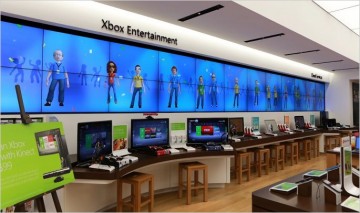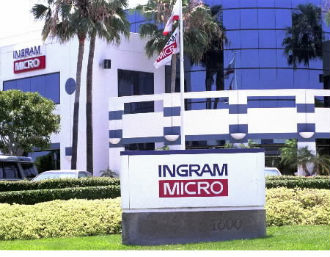 Microsoft’s push into retail could just pay off, according to a report from Forrester.
Microsoft’s push into retail could just pay off, according to a report from Forrester.
Redmond has been buying up retail space in the Best Buy stores to get its message out to consumer clients. In doing so it is not following Apple, but Samsung which is trying a similar operation.
Writing in his bog, J. P. Gownder, a Vice President and Principal Analyst at Forrester Research, said that the Windows Store represents a complete take-over of the PC department. Windows Stores will effectively replace the computer department at these 600 Best Buy locations.
They will offer a wider range of Microsoft consumer products including tablets.
Gownder thinks that the Windows Store represents a vital strategic step forward in its retail strategy and ought to yield some benefits.
But it might be a little too late for that and it should have been a lot more ambitious.
Gownder thinks that the non-Apple Store North American retail channel for consumer electronics is broken and it is imploding. In a pattern which can be seen in Europe, a spiral of disappearing margins has made direct investment in improving stores challenging.
Retailers have resisted attempts to create better, more integrated shopping experiences and some are addicted to the incentives paid by vendors seeking preferential placement, like pricey end-caps.
In the consumer market, users are a little confused by the new computing form factors. Windows used to be one size fits all, but now they have to deal with touchscreen convertibles, hybrid PC/tablets with detachable keyboards and pure tablets running Windows RT. This is not even taking into account giant tablet-like desktop convertibles.
At the moment, it appears that the PC resellers have not managed to find their consumer-centred feet. As a result consumers just can’t figure out what all the Windows 8 options represent, Gownder wrote.
Microsoft’s move will upgrade its retail capabilities significantly, but it’s not as powerful a move as rolling out 600 Microsoft Stores would have been.
It also creates a channel conflict between Microsoft Store and Redmond’s Windows Store. Buyers familiar with Microsoft Stores could face a different experiences when visiting a Windows Store. Microsoft Stores will give technical help and customer service at their Answer Desks, but shoppers with PC problems could end up in Best Buy’s Geek Squad instead.
The scheme also creates OEM conflicts within the Windows ecosystem. Microsoft’s Windows OEM partners, who are already miffed with Microsoft concerning the Surface are now going to have to compete with Redmond’s hardware in a Windows Store managed by Microsoft itself.
Gownder was optimistic about the move, but it is not clear if it can be exported to other countries.



















